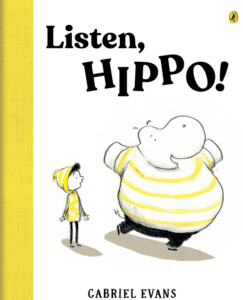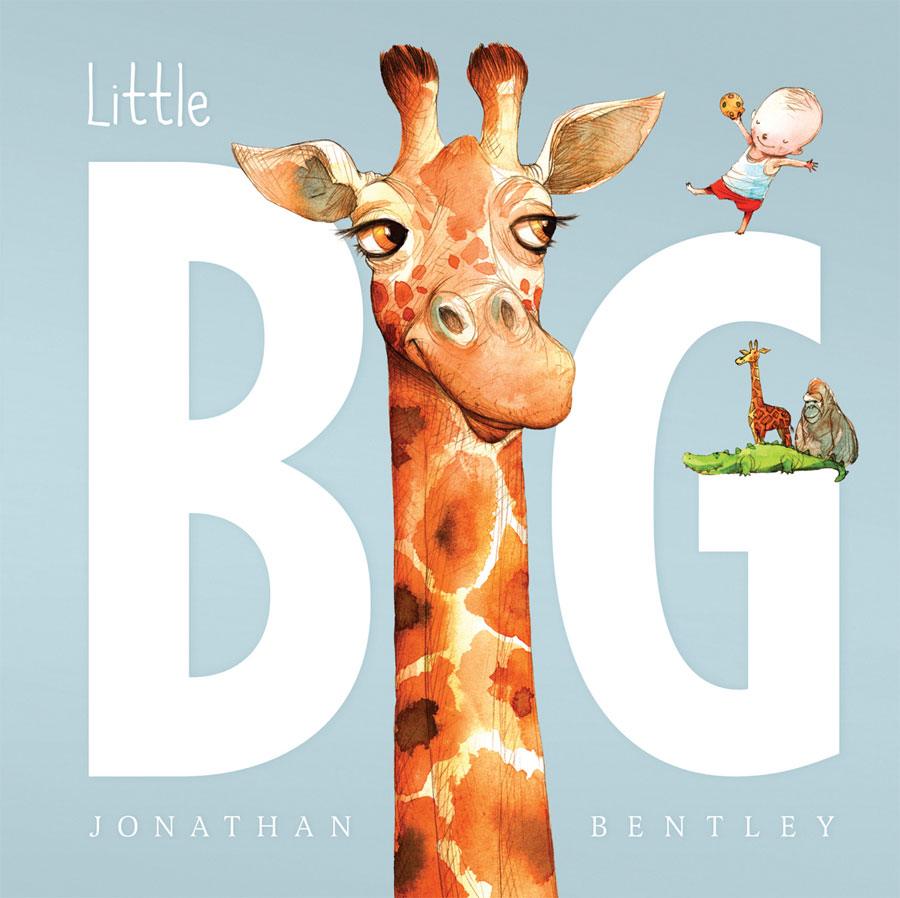Gabriel Evans, Listen, Hippo, Penguin Random House, April 2024, 32 pp., RRP $24.99 (hbk), ISBN 9781761341700
I love this thoughtful, gently humorous picture book story about an exuberant Hippo who tries to cheer up his friend, Billy, with inventive ideas for fun activities. But what Billy really wants is a sympathetic listener.
In recent years there have been several books for young children about managing difficult emotions. Listen, Hippo explores a unique angle on this theme, with emphasis on the role of a friend in supporting a sad person. The story also subtly suggests the importance of politely speaking up for the help that we need when we are unhappy.
On a more superficial level, Listen, Hippo is also an entertaining story about creative ideas for imaginative play and Hippo’s ideas certainly hit top spot for fun – playing dress ups, hunting for dinosaur footprints, “an adventure in a pirate ship”, “Eating chocolate-chip cookies on a flying carpet”.
I love how the dialogue develops the characters with Hippo’s garrulous, energetic, enthusiastic declarations that cut Billy’s pleas short, suggesting Hippo’s boisterous and optimistic nature and Billy’s tentativeness.
Evans’s descriptions of Billy’s sadness with original and relatable, but also humorous, metaphors are impressive – “his tummy felt like scrambled eggs with extra chilli”, “plummeting feelings like a scary boat ride”.
On first impression, the cartoon style images are cute and playful with an uncluttered and pleasant simplicity. When looking at them more carefully, I noticed how brilliantly they convey emotion with facial expression and body posture. Colour is also cleverly used, with a limited colour palette of yellow and white for the quiet scenes and increased colour and background scenery to depict Hippo’s bold, exuberant ideas.
Several of Gabriel Evans’s previous books have been shortlisted for CBCA awards and it looks like this one will be a winner too.
Listen, Hippo is another excellent picture book with the validating message for children that their emotional experiences are universal and normal.
Reviewed by Barbara Swartz





